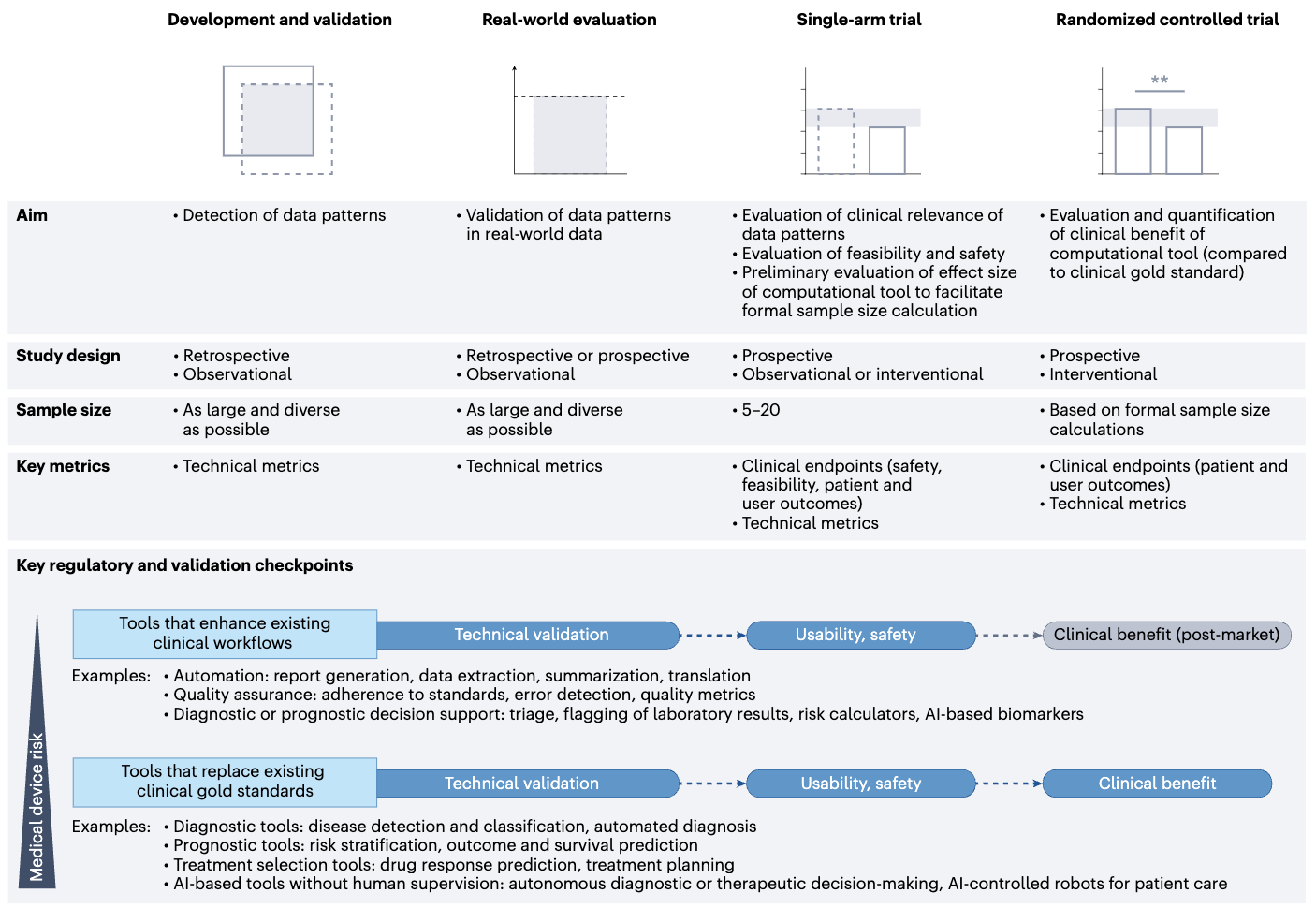New Translational Roadmap Promises Faster, Safer AI in Healthcare
The Challenge:
When AI models are developed on large amounts of patient data, their performance is evaluated using technical metrics such as accuracy. However, the benefit of the same AI models, when deployed in real-world patient care, cannot just be measured by these technical metrics. What matters most to patients and caregivers are improvements in outcomes like treatment success or improved quality of life. Traditional randomized clinical trials provide strong evidence on these real-world patient outcomes, but are slow, costly and often impractical for diverse AI applications. In many cases, this leaves patients waiting for innovations that could save lives.
The Breakthrough:
The authors propose an adaptive validation framework that aligns validation requirements with the AI tool’s risk profile. The sequence of study designs integrates real-world evidence to support a rigorous yet efficient transition of algorithms to the bedside.
Why It Matters:
“Accuracy isn’t enough—what matters is impact on patient outcomes,” said Fiona R. Kolbinger, lead author and biomedical engineering faculty at Purdue. “Our framework provides practical guidance for regulators and developers to ensure safe and effective AI adoption.”
What’s Next:
The study calls for new methods to link technical performance with clinical benefit, continuous monitoring of deployed models, and fairness-aware strategies to reduce bias.
Read the full article: Nature Computational Science


